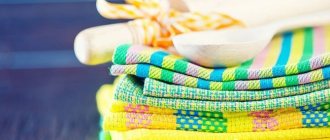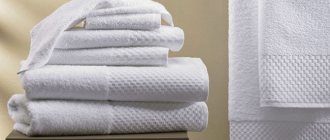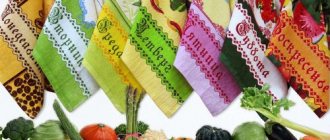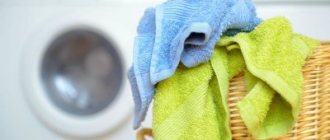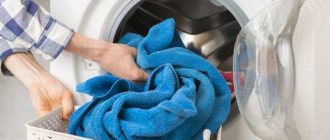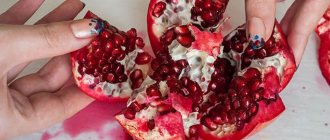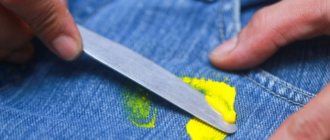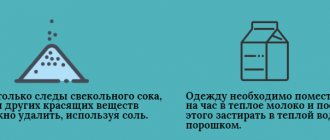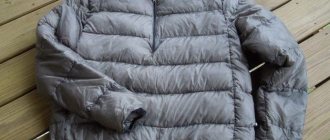The cleanliness and tidiness of kitchen textiles worries every housewife. Kitchen towels perform not only a practical, but also an aesthetic function - they set accents in the interior and add coziness. But how to protect textiles from stains? How to wash kitchen towels and get rid of stubborn dirt? Especially for you, an overview of the most effective and affordable methods is in our article.
The cleanliness and appearance of kitchen towels is important
Salt
Use salt to remove stains from kitchen towels. This method is universal and suitable for both white and colored fabrics.
Dilute the saline solution in a ratio of 1 tbsp. l. table salt per 1 liter of water (for severe dirt and stubborn stains, you can make a “stronger” solution). Soak the towels for at least 1 hour and then wash as usual.
Salt will help get rid of stains, protect white linens from gray casts and maintain the richness of dark and bright towels. Simply add a cup of table salt to the rinse water.
Use salt to remove stains from kitchen towels
Laundry soap
A proven and effective product if you want to remove grease from kitchen towels. Can be used for white and colored items.
Rub damp towels generously with soap, wrap in a plastic bag and leave overnight. In the morning, gently dry the laundry and wash as usual. When washing by machine, to enhance the effect, you can add soap shavings to the drum of the washing machine.
Laundry soap works well on greasy stains. However, it will not help get rid of old and ingrained marks. Soak and wash towels immediately after soiling.
Features of removing fresh and old stains
It is not difficult to remove fresh grease stains; sometimes one wash using ordinary powder is enough. You can add bleach if desired.
Old grease stains must be further treated before washing: wipe the stain with a cotton pad with acetone, gasoline, etc., cover the stain with a paste-like mixture of available cleaning products or soak in a special solution.
In especially severe cases, it will not be possible to remove the greasy stain even this way. Then immediately after washing it is boiled over low heat using ordinary powder, bleach or other suitable means. At the same time, you cannot use dishes in which food is prepared - chemicals can settle on the walls of the container and subsequently saturate the food. It is also necessary to take into account that boiling with bleach is not suitable for colored products, since strong agents corrode the paint.
Important! Dirty towels can only be boiled in enamel containers.
Soda
Baking soda is an effective stain remover and whitening agent. It acts gently on linen without disturbing the structure of the fabric.
Dilute baking soda with water (1 tablespoon per 1 liter of water) and soak the laundry for 1 hour. Then wash as usual. If you want to further whiten light-colored kitchen towels, add ammonia to the solution (0.5 tbsp per 1 liter of water).
If there are old marks on the towels, you can additionally treat them with soda paste before soaking. Mix baking soda with water to form a paste, apply to stains, and leave for 30 minutes. Then start soaking.
Homemade fabric softener can be made from baking soda and a couple of drops of your favorite essential oil. Dilute the ingredients in water and rinse with kitchen towels
So…
Dear Clean!
Good luck and comfort to you. Always smile! Dear Clean! Now you can safely invite your strict mother-in-law to dinner, because your favorite kitchen is sparkling with perfect cleanliness. Enjoy the cake, sip coffee, surrounded by comfort. Receive well-deserved compliments for your golden, hard-working hands!
Share useful information with your friends:
Vinegar
You can remove grease, rust and mold from kitchen towels using table vinegar. Soak kitchen towels in vinegar (6% or 9%) for 15-20 minutes. Using a soft toothbrush, scrub particularly dirty areas and wash the laundry as usual.
Vinegar will help get rid of grease, rust and mold on kitchen towels.
How to wash kitchen mitts
Oven mitts are a convenient and necessary attribute in the cooking process, which can cause your hands to burn. Using this item, you can easily remove or rearrange hot dishes, hold a lid or baking sheet, drain water from a hot pan, and so on.
This product makes cooking in the kitchen comfortable and safe. But the product is constantly in contact with food and fat, which invariably leaves marks on the material. But it is quite difficult to remove such stains. In this article we will learn how to wash oven mitts.
Vegetable oil
Vegetable oil will help wash dirty kitchen towels. It softens dirt and copes well with stubborn stains.
Dissolve 2 tbsp in 5 liters of boiling water. l. vegetable oil, washing powder and dry stain remover (you can use shavings of laundry soap instead). Soak the laundry until the solution cools completely. After the procedure, wash the towels as usual. If the laundry is heavily soiled, you can soak it for several hours.
To get rid of stains on kitchen towels, you can use both sunflower and olive oil.
How to starch
If you want your linen to have an appetizing crunch, starch it.
Starched linen is more difficult to stain and has a pleasant crunch!
- Prepare jelly. To do this, boil water. Separately, stir the required amount of potato starch in a small amount of water. Pour into boiling water, stirring constantly so that there are no lumps (it’s convenient to do this with a whisk).
- The proportions are as follows: 1-2 tablespoons of starch per 1 glass of cold water and 0.5 liters of boiling water. When the starch is cooked, turn it off.
- Pour the “jelly” into a bowl of cool water, straining through a colander (to get rid of any lumps that may still form). The stronger you want to starch your laundry, the thicker the solution should be.
- Dip the towels into the bowl of solution. Rinse them in this water, wring them out and dry them.
Don't want to mess around with the jelly? Use ready-made products Bagi Amilan or Frau Schmidt. They are added directly to the washing machine, the concentration is according to the instructions.
In the washing machine
It turns out that you can starch laundry directly in the washing machine.
- Pre-prepare the “jelly” by brewing the starch in a glass of boiling water (the technology is described above). Cool slightly, strain to remove any lumps.
- Send your laundry to the wash with powder and oxygen bleach at 60℃.
- Pour jelly into the conditioner compartment.
Or add dry starch to the dispenser before the last rinse (as much as you add powder). Iron the laundry while still damp.
Lemon acid
Citric acid will help remove stains and whiten kitchen towels. This way you can get rid of traces of tomato sauce and beets, as well as old stains.
Wash the towels, wring them out and sprinkle citric acid on the stains. Leave for impact. Fresh stains need 10-15 minutes, old stains will need about 1 hour. After the procedure, shake off the acid and rinse the towels.
Citric acid will help get rid of old stains and whiten kitchen towels
Microwave
Modern housewives advise using a microwave oven to wash kitchen towels.
Lather the towels with laundry soap and place them in a plastic bag. Wrap the bag (but do not tie it) and place in the microwave. In medium power mode, turn on the oven for 1.5 minutes. Take a minute break and start again for 1.5 minutes. Carefully remove the towels and rinse thoroughly in water. Stains and unpleasant odors will disappear.
To remove a bag of laundry from the microwave, use tongs or oven mitts. Hot!
Dishwashing liquid
Regular dishwashing liquid will help remove greasy stains from kitchen towels.
Apply the product to the stains and leave for a day. After the procedure, rinse the towels thoroughly and wash as usual.
After soaking in dishwashing liquid, rinse the kitchen towels thoroughly. Dish detergent foams a lot and can lead to unpleasant consequences.
Boiling
Although outdated, it is a very effective way to get rid of stains.
Dilute a standard amount of powder or soap shavings in an enamel bucket, add soda or salt to enhance the effect (1 tablespoon per 1 liter of water). You can add a little dishwashing detergent. Boil the towels for 30 minutes (or 1 hour if heavily soiled). After the procedure, rinse the laundry thoroughly.
Never use the boiling method on brightly colored kitchen towels.
How to wash towels correctly and effectively
- Many stain removers (both homemade and store-bought) are quite radical. Use them no more than once a month.
- When washing kitchen towels, do not use conditioner - all the dishes will smell. In addition, the conditioner leaves a protective film on the fabric, which prevents stains from being washed out.
- Try to wash towels separately from other laundry.
- Only throw dry towels into the basket to avoid mold.
- It is advisable to change towels as often as possible. Experienced Cleaners do this once a day, stocking up on inexpensive fabric rectangles at sales.
- White towels can be boiled and bleached with chlorine.
- An ironed towel does not get dirty so quickly.
- If you dry towels on a hot radiator or iron them, they become hard.
- If you are looking for recipes for clothing fat, follow the link and choose.
If you need to bleach
You can read about all bleaching methods in our article “How to bleach white things.” For printed towels and light-colored fabrics, you can use the following methods.
Hydrogen peroxide
You can wash kitchen towels at home using peroxide. It helps get rid of yellowness and old stains.
Pour peroxide onto stains or, for heavy stains, soak towels completely in the solution. Leave for 30 minutes and wash as usual.
When using hydrogen peroxide to remove stains or bleach, remember that an open jar has a shelf life of 1 month. After this time, there will be no effect from use
Potassium permangantsovka
A solution of potassium permanganate will help not only wash kitchen towels from old stains, but also bleach them.
Add a standard amount of washing powder to a bowl of hot water. Dissolve several crystals of potassium permanganate in a glass of warm water (make sure that the sediment is completely dissolved) and add to the water with the powder. Mix well and soak pre-washed laundry. It is better to cover the basin with cling film. Leave the laundry until the water cools down and then rinse thoroughly.
A solution of potassium permanganate will not only help remove old stains from kitchen towels, but will also whiten them
Mustard
Mustard will help wash kitchen towels and get rid of greasy stains. The method is suitable for delicate fabrics and towels with colored prints.
Prepare a solution (1 tablespoon mustard powder per 1 liter of water) and let it brew for 3 hours. Then strain thoroughly using cheesecloth and immerse the towels in the resulting solution. Exposure time is from 30 minutes to 3 hours. After the procedure, wash your laundry as usual.
For stubborn stains, dilute mustard powder with warm water to a paste, apply the resulting product to the stains and leave for 6-8 hours. Clean off the mustard and wash the towels.
Mustard powder is used to bleach and disinfect kitchen towels
Boric acid
Boric acid removes stains from waffle and terry towels well.
Dissolve 2-4 tbsp in a bowl of hot water. l. boric acid and soak the laundry for 2 hours. Then wash as usual.
Japanese way
The method is also popularly called “lazy”, since it does not require many actions. For the procedure you will need:
- 5 liters of water;
- 250 g mustard powder;
- 30 ml vinegar;
- 60 ml vegetable oil.
Operating procedure:
- Mix the ingredients thoroughly.
- Warm the water to 60 degrees.
- Dissolve the cleaning mixture in hot water and pour the solution into a bucket.
- Place towels in the solution and cover the bucket with plastic.
- To ensure the tightness of the container, glue the polyethylene with tape or secure with an elastic band.
- Leave to soak overnight.
The next morning, remove the towels from the solution and rinse thoroughly 5-6 times.
Useful tips
To keep your kitchen towels clean and looking great, follow these simple tips:
Change kitchen towels every 2-3 days and wash them immediately - this way you can avoid the appearance of stubborn and old stains
Wash white cotton towels at a temperature of +60…+90 ℃. For colored fabrics, select a mode from +40 ℃ to +60 ℃
Be sure to iron kitchen towels after washing - this will make them less dirty.
Dry kitchen towels in the sun. Ultraviolet light will have an additional whitening effect and give the laundry a fresh aroma
Use cotton and linen towels for the kitchen - they are easier to wash and retain a neat appearance longer
Do not buy terry towels for the kitchen - they quickly become dirty and lose their neatness. Save them for bath treatments
Do not use dish towels instead of rags. Do not wipe your oily hands when cooking and do not use towels as oven mitts.
Fresh stains from fat, wine, fruits or vegetables should be immediately covered with salt, soda or crushed chalk for 30 minutes, and then soaked and washed with towels
To get rid of unpleasant odors, soak towels in a soda solution for 3-4 hours
Use the table and the stain removal methods described above for stains of various origins.
| Problem | Solution |
| Fruit stains | Apply hair shampoo to the stains, soak for 1-2 hours |
| Stains from coffee, tea and cocoa | Dilute ammonia with water 1:1, soak stains for 30 minutes |
| Tea | Mix ammonia and glycerin 1:4, apply to stains |
| Mold | Soak in vinegar or peroxide for 15-30 minutes |
| Yellow plaque | Hydrogen peroxide, laundry soap |
| Oily stains | Vegetable oil, dishwashing detergent |
| Unpleasant smell | Soda, potassium permanganate |
| Old stains | Peroxide, citric acid |
| Red wine | Salt + warm water |
| Tomato sauce, juices | Salt, soda, vinegar |
| Berries | Lemon juice and vinegar 1:1, apply to the stain for 15 minutes |
After soaking stains, be sure to wash your towels as usual.
Remember to sort your laundry by color before washing. Do not wash dishtowels with clothes and separate light-colored towels from bright and dark colors
Take care of your kitchen towels and they will keep you clean and fresh for a long time. We hope that our tips will be useful to you. Have you already tried one of the methods? Share your experience in the comments.
Wash by hand or machine
Proper and regular washing of kitchen textiles is 50% of the success of their long service life. To do this, prepare the products correctly, follow the appropriate washing algorithm, and choose the appropriate products.
Preparing towels
Before washing, prepare towels for washing. First of all, remove heavy stains using a special stain remover or improvised means. It would also be a good idea to soak them in a soda or saline solution for 4–5 hours or pour boiling water over them.
What means should I use?
For regular washing of not too soiled towels, regular laundry detergent is suitable. If you decide to soak your towels first, use a saline solution or non-chlorine stain removers for colored materials, and baking soda or chlorine-containing bleach for white ones.
Secrets of automatic washing
Before putting the towels into the drum, sort them by color: separately light ones, separately – with bright colors and prints. Try to process kitchen textiles separately from other things. Select the temperature of the mode, taking into account the characteristics and colors of the material. White cotton towels can be washed in water 90–95 degrees, colored ones - no higher than 60 degrees, and synthetic ones - in cold water up to 40 degrees.
For heavily soiled towels, soak them or set them to an additional pre-wash cycle. Also try to remove stubborn stains before treatment. You can pour not only laundry detergent into the powder compartment, but also bleach or stain remover in proportions according to the instructions.
Be sure to set an additional rinse program to better rinse the powder from the fibers and use a high spin speed.
Hand washing rules
If you wash kitchen textiles by hand, follow the following procedure:
- Fill the basin with hot water.
- Add laundry detergent and a little vinegar to soften the water.
- Leave the textiles in the soap solution for half an hour.
- Thoroughly scrub stubborn dirt and stains onto the material.
- Remove and rinse under the tap.
- Fill the basin again with hot water and add 15 g of salt.
- Rinse the towels.
- Unscrew the towels and hang them to dry.
Features of drying towels
It is worth noting that proper washing of kitchen textiles alone is not enough. Improper drying can lead to bad consequences and damage to the appearance. To avoid this:
- do not dry towels in the bathroom, as they may remain damp;
- the best place for drying is the street or balcony, and in winter - a heated towel rail;
- hang items in one layer;
- Try to let the towel dry within 24 hours, otherwise an unpleasant odor will appear.
If you do not have the opportunity to immediately wash kitchen textiles after use, be sure to dry them thoroughly and only then put them in the dirty laundry basket.
